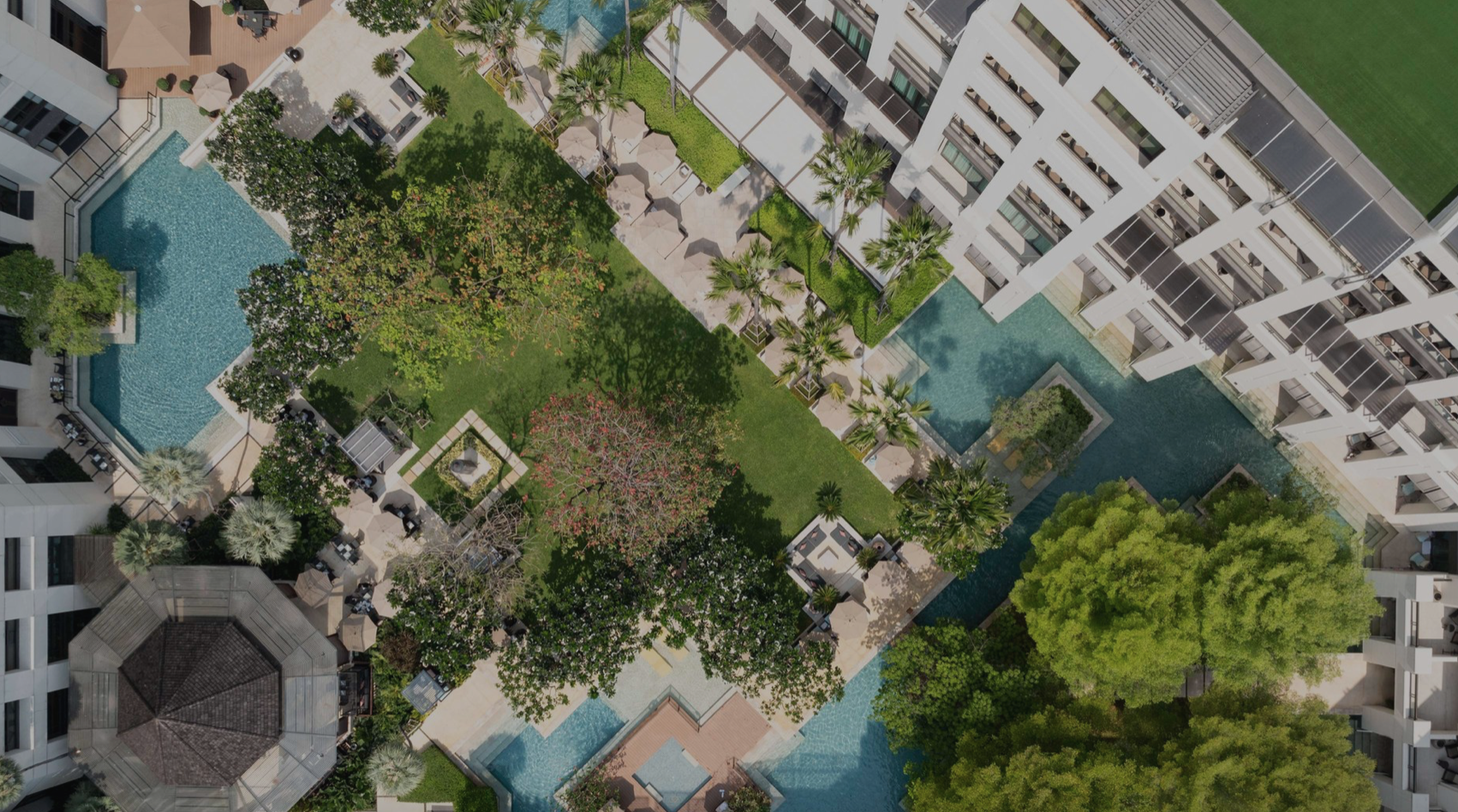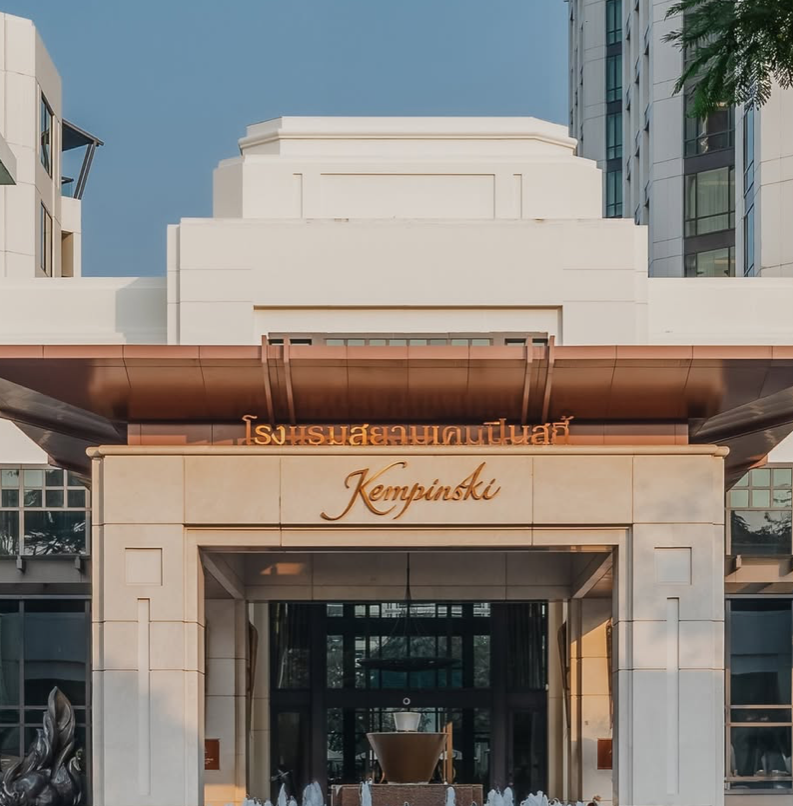
On a humid Bangkok afternoon, sunlight glints off the glass façade of Siam Kempinski Hotel Bangkok. But behind the shimmer is a quiet revolution. High above the city’s bustle, solar panels hum gently, converting tropical rays into clean energy. In the hotel’s tranquil gardens, herbs and edible flowers are picked daily, destined for kitchens where lobster shells, chili stems, and mushroom trimmings are transformed into culinary treasures rather than waste.
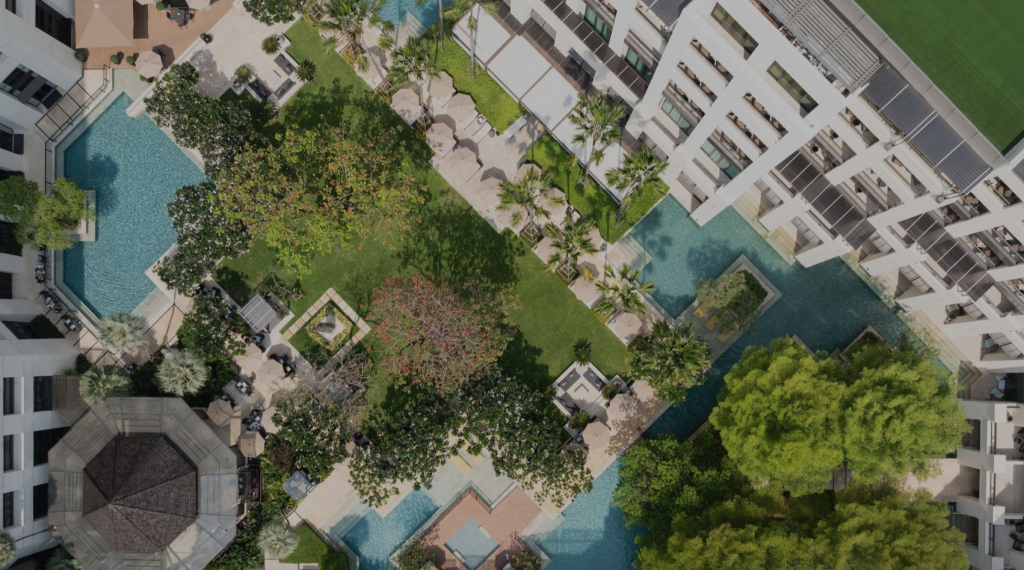
This is not just luxury – it’s luxury with a conscience.
In an era where sustainability is often used as a buzzword, Siam Kempinski has taken a different path: embedding responsibility into every detail of its operations. From its rooftop to its restaurants, the hotel is proving that environmental stewardship and indulgent hospitality are not mutually exclusive, but complementary.
A city oasis with vision
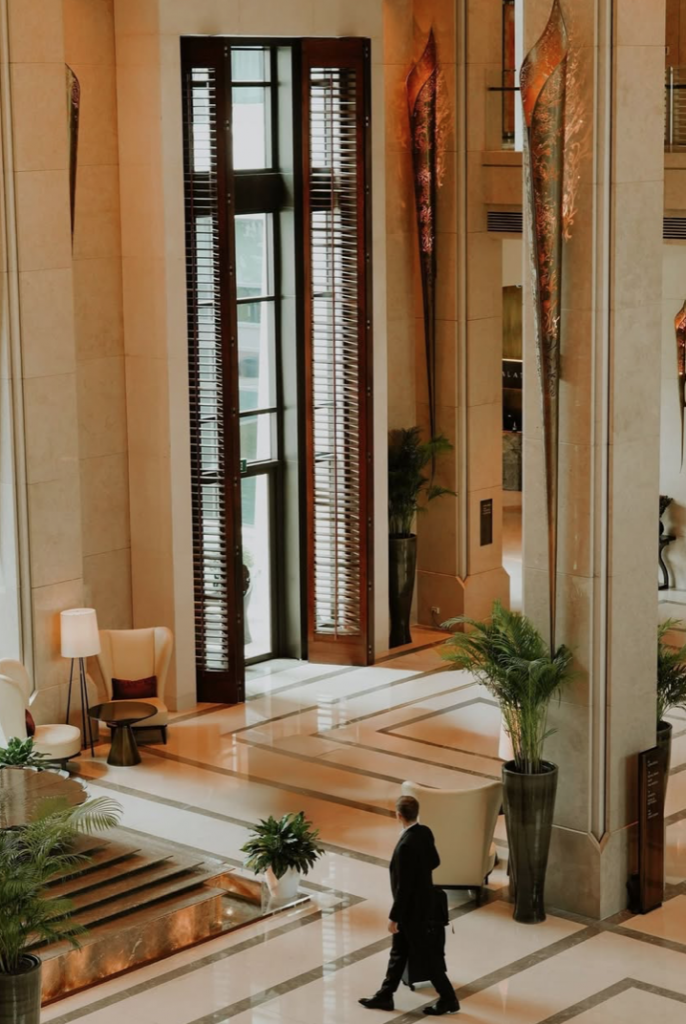
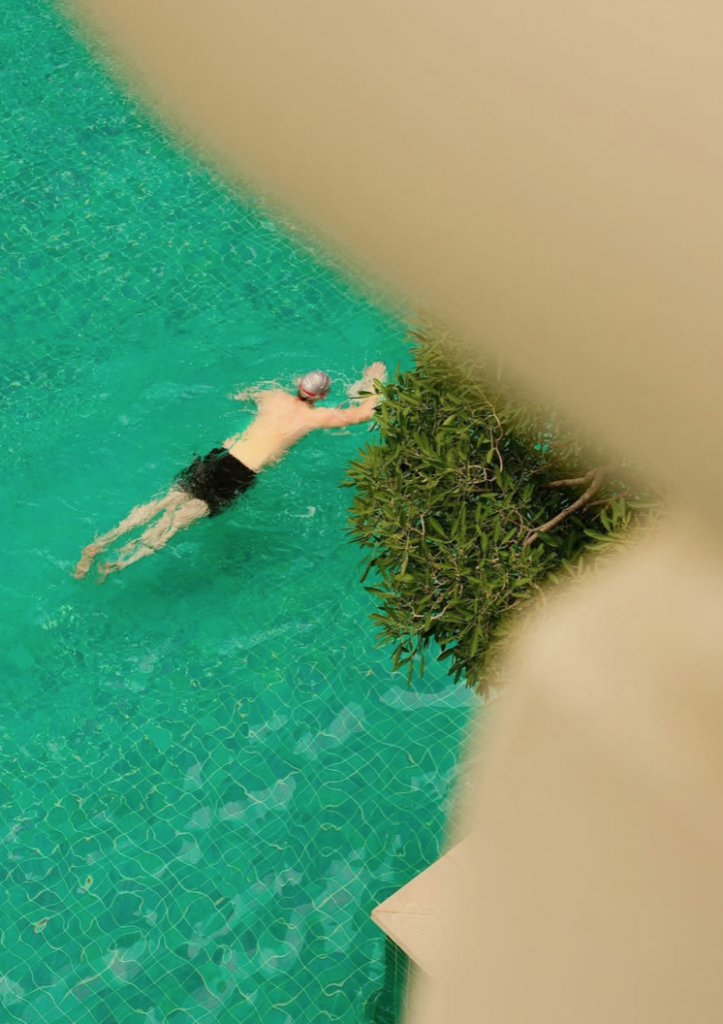
Stepping inside the property feels like entering a sanctuary in the heart of Bangkok. Its lush gardens are more than ornamental, but they are living ecosystems designed to support biodiversity, purify the air, as well as soften the city’s tropical heat.
The hotel’s environmental practices are anchored by the EarthCheck Certified program, which sets global sustainability benchmarks. In 2024, solar panels were installed to generate clean energy, while UV-coated windows help reduce heat absorption and cut electricity use. Water-saving fixtures, energy reductions during breaks, and simple behind-the-scenes practices such as double-sided printing reinforce a culture of conservation.
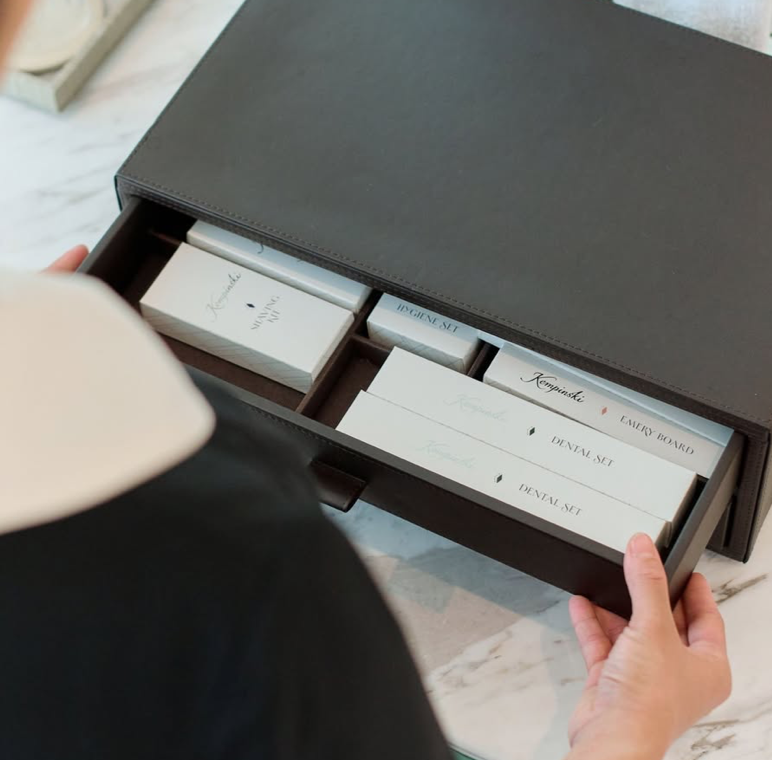
Guests are invited to be part of the journey too. Rooms feature reusable glass water bottles instead of plastic, biodegradable straws replace single-use options, and the Green Linen Artefact Initiative, symbolized by the traditional Thai Pla Thapien fish, encourages mindful choices without compromising comfort.
Sustainability here is not an obligation – it’s an effortless enhancement of the guest experience.
Sustainable community
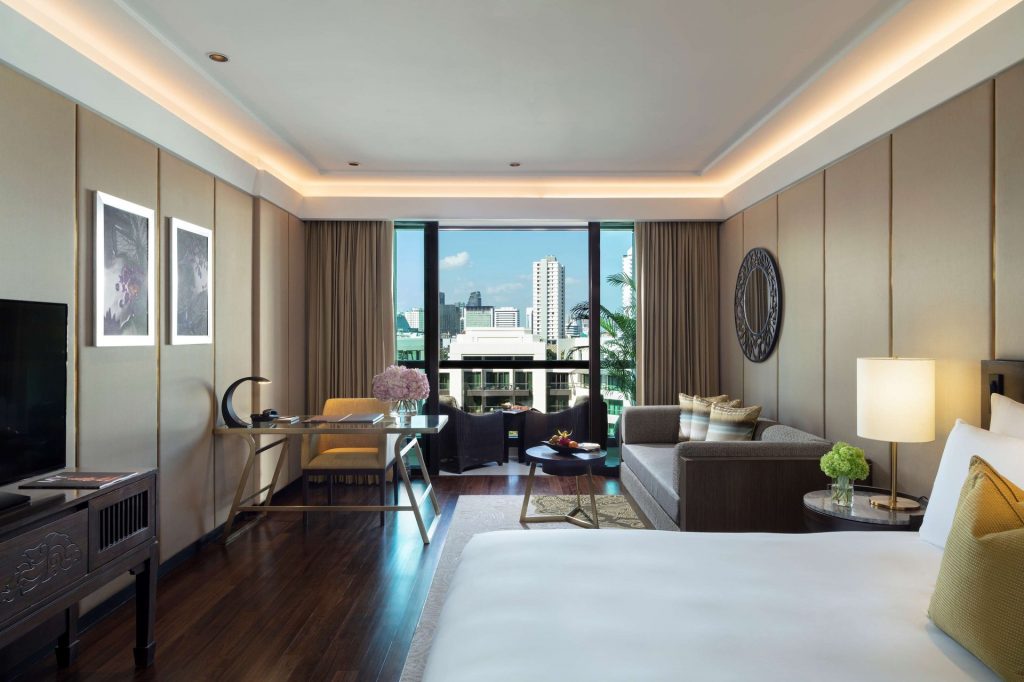
Siam Kempinski’s sustainability extends far beyond its environmental footprint. Through the global BE Health initiative, the hotel partners with the Autistic Thai Foundation, supporting individuals with autism and special needs. This collaboration focuses on long-term care, skills training, and inclusive opportunities.
Fundraising efforts such as the “One Euro Donation Per Night” campaign and the annual BE Health Online Auction provide medical care, equipment, and tailored community programs. For guests, every stay becomes more than a personal indulgence, but it is a meaningful contribution to a broader cause.
A conscious approach to dining

Dining at Sra Bua by Kiin Kiin is as much a journey of conscience as it is of taste. Helmed by Chef Henrik Yde Andersen and the resident Chef Berm Chayawee, this Michelin-listed restaurant transforms Thai cuisine into a philosophy of respect for ingredients, land, and tradition.
On-site hydroponic gardens supply holy basil, butterfly pea, lemongrass, mint, coriander, and even bananas. These fresh harvests infuse teas, cocktails, and garnishes while cutting transport emissions.
The restaurant champions a whole-ingredient philosophy. A Phuket lobster becomes a lesson in circular cooking, leading to that the tail enriches a fragrant curry, the roe is dried into seasoning, and the shells are roasted into a rich sauce. Mushroom trimmings become umami powders, while traditional shrimp paste from Ranong anchors dishes in Thai terroir. Waste is minimized, flavor intensified.
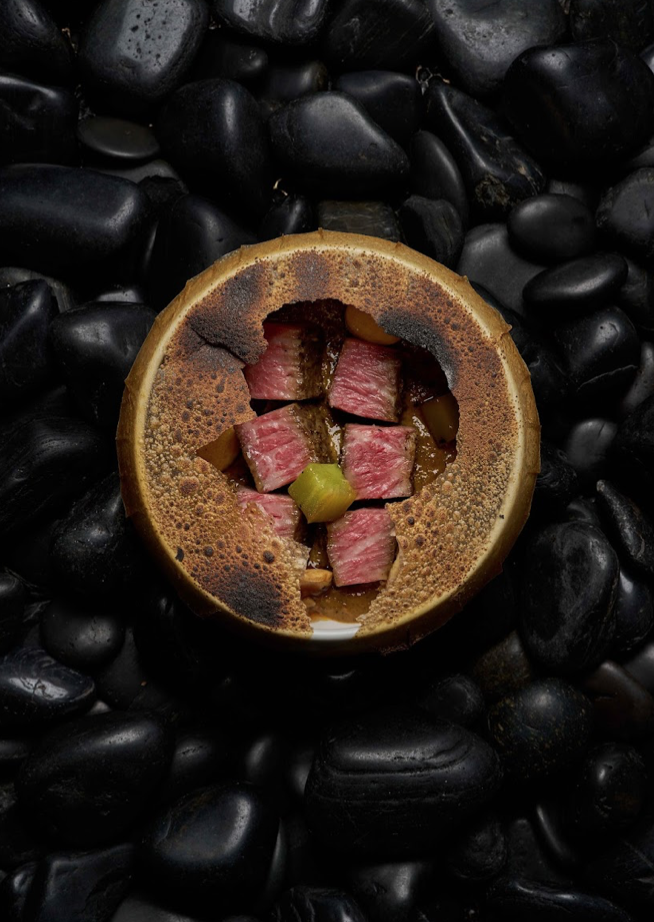

Every dish we serve tells the story of Thailand, and it’s about honoring the farmers, the seasons, and the land.
Partnering with NORDAQ, Sra Bua filters its own water, cutting transport emissions and plastic waste. House-made kombuchas, juices, and hand-pounded curry pastes further highlight a commitment to authenticity and zero-waste dining.

If Sra Bua celebrates Thailand’s terroir, ALATi, the Mediterranean-inspired restaurant led by Executive Chef Phillip Taylor, delivers a global vision of conscious cuisine.
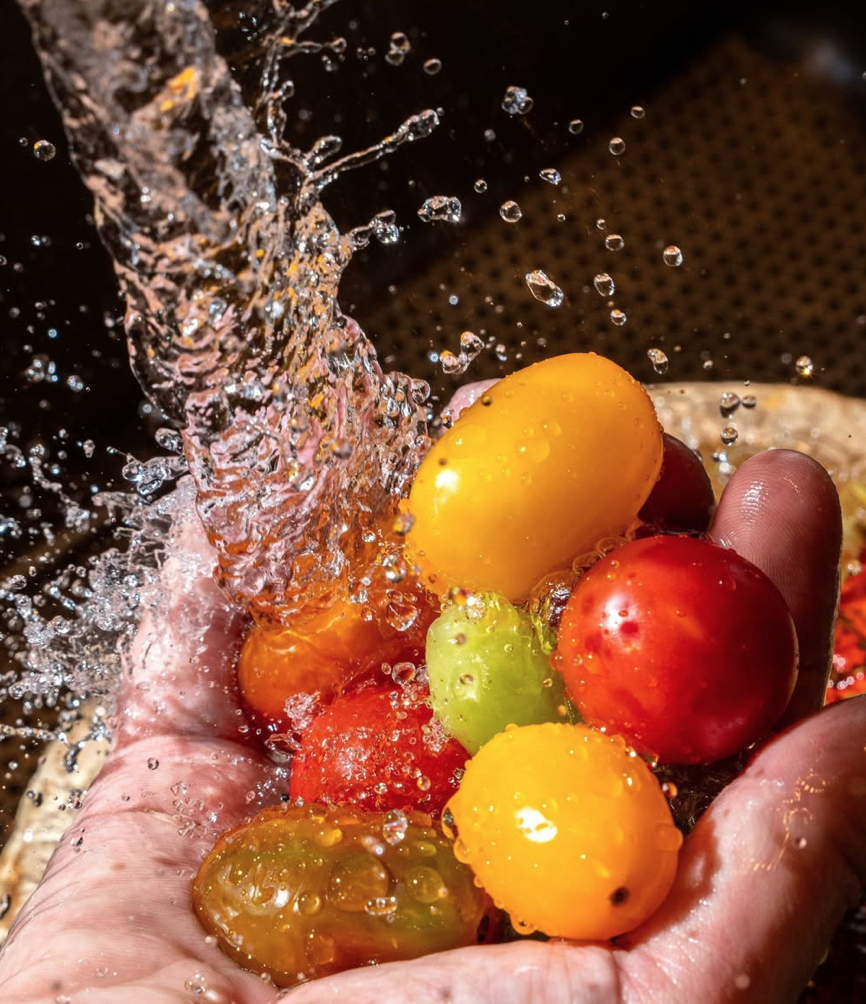
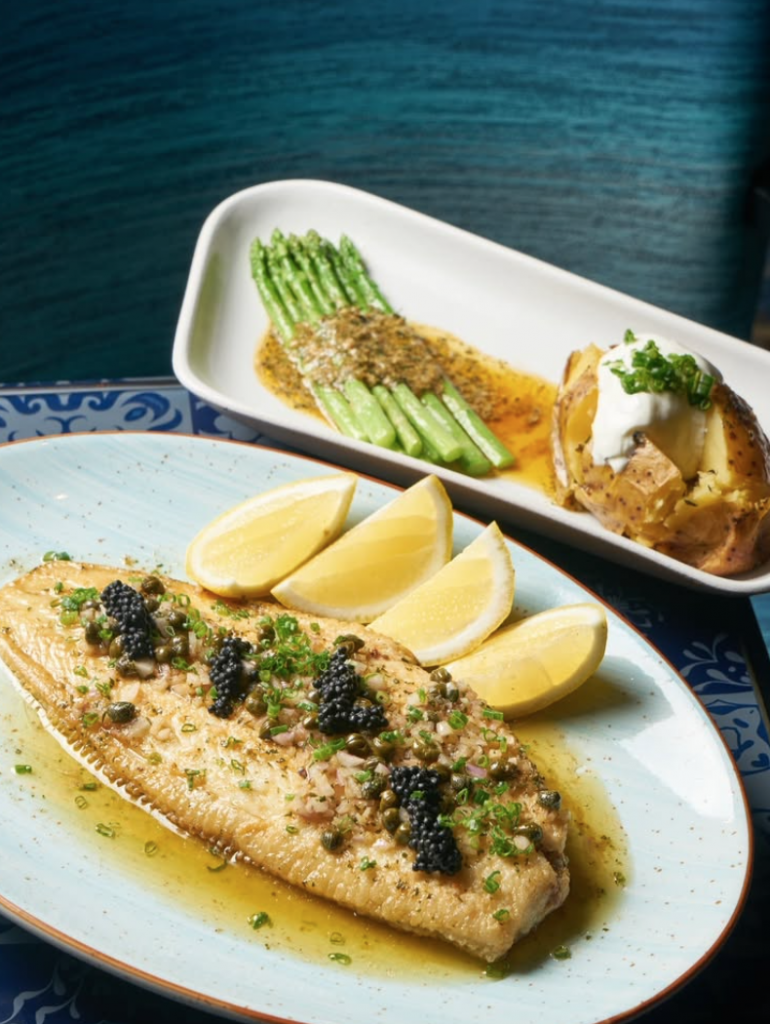
Here, an in-house hydroponic cabinet grows rosemary for grilled meats, basil for pizzas and pastas, and crisp lettuces for colourful salads. Menus evolve quarterly to showcase seasonal Thai produce, including heirloom tomatoes and asparagus from Golden Hills Farm, poultry from Khlong Phai Farms, and eco-grown mushrooms from Earthling Mushrooms. And seafood is responsibly sourced from Thai waters, supporting local fishermen while reducing imports.
Waste reduction completes the circle. Organic kitchen scraps are composted and returned to the gardens, while recycling programs ensure plastics and paper are properly managed.
At ALATi, every decision – from our suppliers to how we handle trimmings – comes down to one question if it’s the most responsible choice.
A new definition of luxury
What sets Siam Kempinski apart is not only the breadth of its initiatives but the subtlety with which they shape the guest experience. They are not elements to notice, but they are details to feel. Not only may the herbs in a cocktail may have been picked that morning, but also the seafood on a plate likely came from Thai waters.
In a hospitality world where “eco-friendly” is often spoken lightly, Siam Kempinski Hotel Bangkok offers a compelling alternative which is one where luxury is defined by responsibility.
The message is clear: sustainability is not about doing less. It is about doing more – more care for the environment, more respect for producers, and more meaningful contributions to the community.
Perhaps this is the future of travel. A world where checking into a hotel is not only an indulgence but also a way of leaving the planet, and its people, a little better off.
Because here, sustainability is not an afterthought. It is the new luxury.
